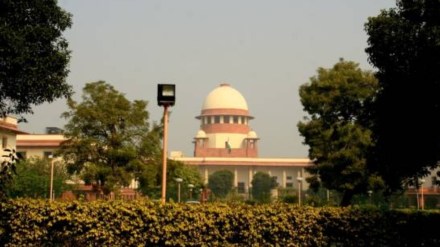The Supreme Court on Monday announced that the petitions challenging the contentious Waqf law will be heard by a bench led by Justice B.R. Gavai, who is set to assume office as the next Chief Justice of India on May 14. Chief Justice Sanjiv Khanna, who is set to retire on May 13, announced the decision, stating that the matter would require a lengthy hearing before any interim order could be passed.
With Chief Justice Khanna retiring on May 13, the bench has limited time for a final hearing, especially as the case involves multiple lawyers presenting detailed arguments for both the petitioners and the Centre, which has already filed a 1,300-page interim affidavit.
On April 17, Solicitor General Tushar Mehta assured the court that the Centre would refrain from denotifying any waqf properties — including those under “waqf by user” — and from making appointments to the Central Waqf Council or State Boards until May 5. This commitment came as the government resisted calls for an interim stay on the amended law’s provisions.
The Centre has strongly opposed any stay on allowing non-Muslims to be part of the Waqf boards and Council, calling the Act a result of legitimate parliamentary debate and insisting that no stay should be granted without a full hearing.
The court had earlier directed that properties informally considered waqf — referred to as “waqf by user” — and already registered or notified should not be altered until further orders.
In its affidavit filed on April 25, the Ministry of Minority Affairs defended the amended law, arguing that the concept of registration by usage has been a legal standard since 1923. It opposed a blanket stay, warning that judicial intervention could effectively rewrite legislation.
The government further maintained that the Waqf (Amendment) Act, 2025 does not interfere with religious practices and only addresses administrative aspects. It also highlighted a 116% rise in registered waqf land — now estimated at nearly 20 lakh acres — after the 2013 amendment, alleging that earlier provisions were misused to encroach on private and government land.
The Act received President Droupadi Murmu’s assent on April 5, having been passed in Parliament with 288 votes in favour and 232 against in the Lok Sabha, and 128 for and 95 against in the Rajya Sabha.
However, the All India Muslim Personal Law Board has challenged the government’s position, accusing it of presenting misleading data and calling for disciplinary action against the official responsible for what it termed a “false affidavit.”
The Supreme Court, which had earlier granted the Centre time to submit its preliminary response, will now resume hearings in the case.
